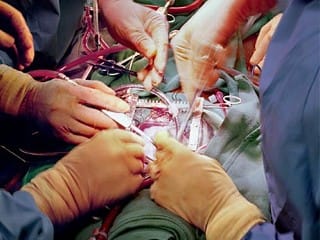
Time Away from Operating Table Can Hurt Surgeons’ Performance
Just like the greatest musicians who say that if they miss a day of practice they can tell, if they miss 2 days the critics can tell, and if they miss 3 days, the audience can tell, the same seems to be true for surgeons. A recent study conducted by researchers at George Mason University looked at hospital and discharge data for 56,000 patients who had heart bypass surgeries. They separated the patients into two groups: one where the surgeon performing the bypass surgery had also operated the day before and the other group where the surgeon had not performed a surgery the day before. The results were remarkable: as the number of days away from the operating table increased, the chances of an adverse outcome for a patient also increased.The Small, But Cumulative Effect of Time Away from the Operating Table
The study results, although important, were so small that most hospitals and individual doctors probably wouldn’t notice the difference in patient outcomes after surgeons take time away from their work. However, what is notable about the study results is that the longer the amount of time away from the operating table, the worse the patient outcomes. For example, if you took 100.000 bypass surgery patient, 2,700 of those would die before leaving the hospital. The study results indicate that for every additional day that a surgeon took off from work, an additional 70 patients would die prior to discharge.
Many Possible Explanations for the Adverse Effects of Surgeons’ Time Off
There are many possible explanations for the adverse effects of surgeons’ taking time off. First, it could be that surgeons are losing a bit of dexterity in their time off. However, it could also be that surgeons do fine performing the surgery, but miss out on complications after surgery. They may also forego additional tests or not think about very rare risks after returning from a leave. The next possibility is that surgical teams may need a few days after the surgeon comes back to the job to “regroup” and work together as a team. The last explanation is that hospitals may line up the sickest patients first for when surgeons return from their leave, thereby increasing the likelihood that those patients will die anyway. It’s important to determine which of these is the most likely explanation so that the proper policies can be put in place to prevent patient deaths. For example, perhaps surgeons need more dexterity brush-ups after returning from an extended leave, or surgical teams might need practice working together.







